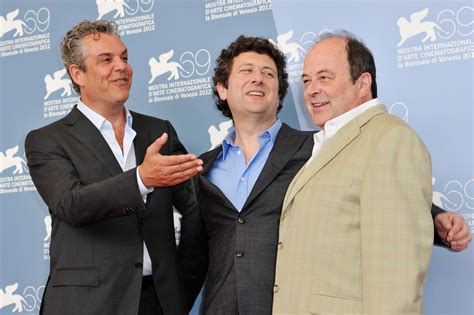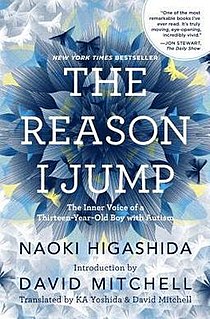A Quote by Jose Saramago
...sometimes we ask ourselves why happiness took so long to arrive, why it didn't come sooner, but appears suddenly, as now, when we've given up hope of it ever arriving, it's likely then that we won't know what to do, and rather than it being a question of choosing between laughter and tears, we will be filled by a secret anxiety to which we might not know how to respond at all.
Related Quotes
We ask ourselves all kinds of questions, such as why does a peacock have such beautiful feathers, and we may answer that he needs the feathers to impress a female peacock, but then we ask ourselves, and why is there a peacock? And then we ask, why is there anything living? And then we ask, why is there anything at all? And if you tell some advocate of scientism that the answer is a secret, he will go white hot and write a book. But it is a secret. And the experience of living with the secret and thinking about it is in itself a kind of faith.
Sometimes there are more tears than laughter, and sometimes there is more laughter than tears, and sometimes you feel so choked you can neither weep nor laugh. For tears and laughter there will always be so long as there is human life. When our tear wells have run dry and the voice of laughter is silenced, the world will be truly dead.
I would not exchange the laughter of my heart for the fortunes of the multitudes; nor would I be content with converting my tears, invited by my agonized self, into calm. It is my fervent hope that my whole life on this earth will ever be tears and laughter. Tears that purify my heart and reveal to me the secret of life and its mystery, Laughter that brings me closer to my fellow men; Tears with which I join the broken-hearted, Laugher that symbolizes joy over my very existence.
The mathematical question is "Why?" It's always why. And the only way we know how to answer such questions is to come up, from scratch, with these narrative arguments that explain it. So what I want to do with this book is open up this world of mathematical reality, the creatures that we build there, the questions that we ask there, the ways in which we poke and prod (known as problems), and how we can possibly craft these elegant reason-poems.
Sometimes we ask ourselves 'Why?' Why do I continue to smile, to give, to live? Why do I continue to stand, despite the ferocity of the wind that keeps blowing, that keeps slapping against my face, creating a pressure that says 'fall'? Why I don't I listen to those who call me a fool because I continue to love despite my hurt? I don't know what tomorrow brings; I don't know if my troubles will seize or if my sorrows will continue. But this much I do know - I will continue to hold out, I will continue to press on, until my blessing comes.
Why are we such tortured human beings, with tears in our eyes and false laughter on our lips? If you could walk alone among those hills or in the woods or along the long, white, bleached sands, in that solitude you would know what meditation is. The ecstasy of solitude comes when you are not frightened to be alone no longer belonging to the world or attached to anything. Then, like that dawn that came up this morning, it comes silently, and makes a golden path in the very stillness, which was at the beginning, which is now, and which will be always there.
['John F. Kennedy] movie is based on a massive best-selling book, which is always helpful. And then the script was amazing and answered my question, "Why this? Why now?" And the "why now" is that it's 50 years since the assassination, and the country needs to have and will have a conversation about that. And the "why this" is the construct, which I think is sort of ingenious.
I should say we know that there are many, many other Earths out there. We're almost certain that there will be upwards of a billion Earth-like planets in our galaxy alone, so there is no lack of real estate where life might happen, but what we don't know is how likely it is given the real estate, given a wonderful pristine planet like Earth how likely is it that life will pop up inhabited? We don't know the answer to that.
Kartik places a sovereign in the lady's cup, and I know that it's likely all he has. "Why did you do that?" I ask. He kicks a rock on the ground, balancing it nimbly between his feet like a ball. "She needed it." Father says it isn't good to give money to beggers. They'll only spend it unwisely on drink or other pleasures. "She might buy ale with it." He shrugs. "Then she'll have ale. It isn't the pound that matters; it's the hope...I know what it's like to fight for things that others take for granted.
If you're not filled back up quickly, you might collapse like a birthday balloon". I guess that's why acting is so addictive. For the director, that addiction will come from the love and trust he gets from the "orchestra", him being the conductor. That's why many directors fall in love with their leading lady/man: having someone say "how do you want me to be" is incredible.
I've learned that every human being, with or without disabilities, needs to strive to do their best, and by striving for happiness you will arrive at happiness. For us, you see, having autism is normal-so we can't know for sure what your 'normal' is even like. But so long as we can learn to love ourselves, I'm not sure how much it matters whether we're normal or autistic.
I once thought that if I could ask God one question, I would ask how the universe began, because once I knew that, all the rest is simply equations. But as I got older I became less concerned with how the universe began. Rather, I would want to know why he started the universe. For once I knew that answer, then I would know the purpose of my own life.
I was a bartender for a long time, so I know how to make drinks, but I'm more likely to offer them than to have them. I think this is one of the reasons why I get to live longer than my great-grandmother did, and why I get to produce more writing than she did, and why my marriage isn't in dire straits.
...we ask: Why suicide? We search for reasons, causes, and so on.... We follow the course of the life he has now so suddenly terminated as far back as we can. For days we are preoccupied with the question: Why suicide? We recollect details. And yet we must say that everything in the suicide's life- for now we know that all his life he was a suicide, led a suicide's existence- is part of the cause, the reason, for his suicide.







































